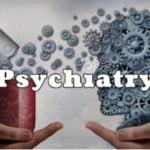 We’re Done with COVID… But COVID’s Not Done with Us.
We’re Done with COVID… But COVID’s Not Done with Us.
As we celebrate the July 4th Holiday, let’s take stock of where we are and what’s next. Over 50,000 new US COVID cases are being reported daily. Scientists agree the number is already over 100,000 daily new casesbut our testing capacity is not yet up to the challenge. That is more than the next 4 countries – Brazil, India, Russia and Spain – combined. Those 4 countries have 6X our population, but far fewer cases.
We are in the eye of the storm and have been for many weeks. While other countries are seeing dramatic success, we are failing. Yet many of us are ready to give up the fight, relax and go back to ‘normal’. “Look! Deaths are going down!” “Nobody in my area has it, so I’m safe without a mask.” That’s what people are saying right before they and their friends and families contract this devastating illness.
As we see cities and states opening back up, take this as a signal not that the disease is abating, but rather, that the responsibility for fighting this is squarely on our shoulders. Yes – you and me. We’re in charge. So, what do we do?
The Flip Side of Freedom is Responsibility.
Yes, we are now free to choose if we wear a mask or socially distance. I encourage you to exercise this freedom responsibly. I wear a mask to protect you, and you need to wear a mask to protect me. We don’t need to be closer than six feet. It’s that simple. But is it?
When we don our masks, we are reminded of the imminent threat to our health, security, economy and loved ones. We mourn for those carefree days with our friends and families. We miss going to a game or a concert or a movie or a dinner. Some of us are angry and frustrated. Some have reached a breaking point and decide to rebel against the danger by simply denying it. While we can understand the desire, the outcome is life threatening for all of us. We now have to live recognizing our role in the health of others and trusting them to protect us as well.
Managing this unrelenting stress is critical for your health and wellbeing. Get started now, as we’re surely in for a prolonged experience with this disease. It’s not done with us yet. Rather than dwell on what you are missing out on over this holiday, think about how you are doing your part - how you are taking a leadership role - in making our country free and safe for the future.
I had published these tips a few months ago and felt they deserved your attention once again as we move into a long holiday weekend. Let me know how you do!
- Take your emotional pulse 3 times daily, at morning noon and night. Acknowledging your feelings helps you deal with them and not turn them on those you are with. Don’t reach for your phone first thing… spend 5 minutes at bedside breathing and seeking out your feelings. Just be okay with short quiet reflection.
- Invite your partner to become your emotional teammate. Agree to work together in support of each other’s growth through this period.
- Communicate your emotional states in a better deeper way. Figure it out with your partner – share and discuss things openly. It may even be a need for more space – but by sharing it, your partner understands you and you’ve discussed where it’s coming from. This is the kind of emotional communication that strengthens connection.
- Practice ‘deep listening’ and reflecting so the other feels like they are heard and that they are in it with you. This is not a time for solutions or platitudes. You’ll be surprised by the power of being truly understood.
- Show your appreciation by demonstrating and verbalizing the value the other is providing, in ways both big and small.
- This is your opportunity to re-frame your sexual life together. Try a new approach, where sex becomes a physical conversation and is not goal oriented. You can reinvent sex as an expression of depth, interest, hearing each other, appreciating each other and sharing an intense experience together. Often people fall out of intimacy because of fear – not boredom or habituation.
- Make Plans. Answer all the ‘what ifs’ that are causing anxiety for you or your partner. What if I get sick? What if you do? What happens to our kids, our money, our home, etc.
- Accept people as they are during this time. Stress is stirring the pot. They (and you) will have bad moments, and you need to give them (and yourself) a break. Growth comes not from keeping everything perfect and seamless, it comes from building new strengths and repairing when things are not.
We have plenty more to share after the holiday, but until then, I wish you and your family a safe and healthy July 4th.
Michael Miletic, M.D.








